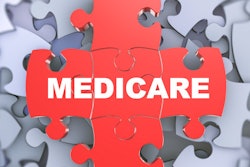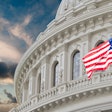
Dental Medicaid providers range from solo practitioners to large interstate dental service organizations. All are well-advised to know the particulars of their state's Medicaid rules. Lawsuits have been filed against alleged violators related to unlawful billing of Medicaid beneficiaries for missed appointments.
 Dr. Michael W. Davis.
Dr. Michael W. Davis.One of the more recent lawsuits was filed by the office of Massachusetts Attorney General Maura Healey. On June 10, the office announced an amended lawsuit against a dentist for allegedly charging Massachusetts Medicaid patients for missed or canceled appointments.
The new claims charged that Dr. Mouhab Rizkallah and the two companies he owns and operates required patients with MassHealth insurance to sign a "MassHealth Treatment Contract." The contract asked patients to agree to a minimum $20 fee for missed or canceled appointments and for appointments rescheduled on less than 24 hours' notice.
Under Commonwealth Medicaid regulations, providers are prohibited from charging MassHealth patients out-of-pocket fees for covered services, including any costs associated with appointments that patients are unable to make. These alleged fees were directly billed to Medicaid patients and collected in violation of state and federal statutes, Healey's office said.
Federal rules for no-show billing
There's a history of providers illegally billing Medicaid patients for missed appointments. As a result, the federal government has taken steps to address billing compliance.
On June 12, 2000, the U.S. Department of Health and Human Services Office of Inspector General published findings concerning a voluntary Medicare and Medicaid compliance program for individual and small group practices. Seven key components in the program included the following:
- Conducting internal monitoring and auditing
- Implementing compliance and practice standards
- Designating a compliance officer or contact
- Conducting appropriate training and education
- Responding appropriately to detected offenses and developing corrective action
- Developing open lines of communication
- Enforcing disciplinary standards through well-publicized guidelines
These seven voluntary components became mandatory under the Patient Protection and Affordable Care Act. Providers of Medicare and Medicare have had to meet requirements of a compliance program for the past decade.
The rules also differ for Medicare and Medicaid patients. Although both programs are administered by the U.S. Centers for Medicare and Medicaid Services, Medicare is primarily managed at the level of the federal government, while Medicaid supervision is mostly left to the individual states. As a result, each state establishes its own rules and regulations for healthcare services related to Medicaid.
Under federal Medicare rules, providers may charge Medicare beneficiaries for missed appointments under specific circumstances. Billings must be the same as the amount that they charge non-Medicare patients. However, no billings to the government will be accepted for patients' failed appointments.
In contrast, few states permit providers to bill Medicaid-covered members for missed appointments. States are fairly clear on that point, and many have a record of enforcement.
State regulations vary
Massachusetts is no stranger to enforcing rules against billing Medicaid patients for missed appointments. In 2019, the Massachusetts attorney general's office settled with a medical pediatric office to resolve allegations of billing MassHealth patients for no-show appointments.
When asked if offices could charge a no-show fee to Medicaid patients, the Texas Medical Association answered as follows: "No. Medicaid does not allow patients to be billed for missed appointments. If a patient routinely skips scheduled appointments, the office should consider discussing the situation with the patient. Many Medicaid patients do not have access to reliable transportation, which is frequently cause for missed appointments."
New York State's Department of Health Medicaid guidance specifically states that Medicaid beneficiaries cannot be billed except in the event of required copayment under the state's policy. Charging a fee to Medicaid beneficiaries for failed appointments is unlawful in the state.
The rules differ, though, for Medicaid patients in Utah. However, to bill patients in the state, providers must meet four important criteria that mirror federal Medicare rules:
- The provider has an established policy for billing all patients for services not covered by a third party. (The charge cannot be billed only to Medicaid patients.)
- The patient is advised prior to receiving a noncovered service that Medicaid will not pay for the service.
- The patient agrees to be personally responsible for the payment.
- The agreement is made in writing between the provider and the patient, detailing the service and the amount to be paid by the patient.
In reality, some dental Medicaid providers not only unlawfully bill Medicaid beneficiaries for missed appointments but also lack any semblance of a compliance program as mandated by federal law. Ignorance of the statutes is not a valid excuse for violation.
Some authorities may aggressively enforce these particular statutes, as has been witnessed in Massachusetts. Other regulators and government oversight may be lax or nonexistent. Regardless, liability risks for unlawful billings to Medicaid patients and failure to establish a Medicaid compliance program are very apparent.
Dr. Michael W. Davis practices general dentistry in Santa Fe, NM. He assists as an expert witness in dental fraud and malpractice legal cases. He currently chairs the Santa Fe District Dental Society Peer Review Committee and serves as a state dental association member to its house of delegates. He extensively writes and lectures on related matters. He can be reached at [email protected] or SmilesofSantaFe.com.
The comments and observations expressed herein do not necessarily reflect the opinions of DrBicuspid.com, nor should they be construed as an endorsement or admonishment of any particular idea, vendor, or organization.



















